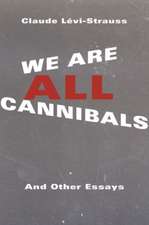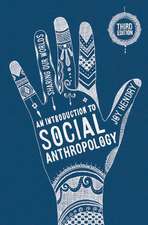Never Saw It Coming: Cultural Challenges to Envisioning the Worst
Autor Karen A. Ceruloen Limba Engleză Paperback – 9 oct 2006
People—especially Americans—are by and large optimists. They're much better at imagining best-case scenarios (I could win the lottery!) than worst-case scenarios (A hurricane could destroy my neighborhood!). This is true not just of their approach to imagining the future, but of their memories as well: people are better able to describe the best moments of their lives than they are the worst.
Though there are psychological reasons for this phenomenon, Karen A.Cerulo, in Never Saw It Coming, considers instead the role of society in fostering this attitude. What kinds of communities develop this pattern of thought, which do not, and what does that say about human ability to evaluate possible outcomes of decisions and events?
Cerulo takes readers to diverse realms of experience, including intimate family relationships, key transitions in our lives, the places we work and play, and the boardrooms of organizations and bureaucracies. Using interviews, surveys, artistic and fictional accounts, media reports, historical data, and official records, she illuminates one of the most common, yet least studied, of human traits—a blatant disregard for worst-case scenarios. Never Saw It Coming, therefore, will be crucial to anyone who wants to understand human attempts to picture or plan the future.
Though there are psychological reasons for this phenomenon, Karen A.Cerulo, in Never Saw It Coming, considers instead the role of society in fostering this attitude. What kinds of communities develop this pattern of thought, which do not, and what does that say about human ability to evaluate possible outcomes of decisions and events?
Cerulo takes readers to diverse realms of experience, including intimate family relationships, key transitions in our lives, the places we work and play, and the boardrooms of organizations and bureaucracies. Using interviews, surveys, artistic and fictional accounts, media reports, historical data, and official records, she illuminates one of the most common, yet least studied, of human traits—a blatant disregard for worst-case scenarios. Never Saw It Coming, therefore, will be crucial to anyone who wants to understand human attempts to picture or plan the future.
“In Never Saw It Coming, Karen Cerulo argues that in American society there is a ‘positive symmetry,’ a tendency to focus on and exaggerate the best, the winner, the most optimistic outcome and outlook. Thus, the conceptions of the worst are underdeveloped and elided. Naturally, as she masterfully outlines, there are dramatic consequences to this characterological inability to imagine and prepare for the worst, as the failure to heed memos leading up to both the 9/11 and NASA Challenger disasters, for instance, so painfully reminded us.”--Robin Wagner-Pacifici, Swarthmore College
“Katrina, 9/11, and the War in Iraq—all demonstrate the costliness of failing to anticipate worst-case scenarios. Never Saw It Coming explains why it is so hard to do so: adaptive behavior hard-wired into human cognition is complemented and reinforced by cultural practices, which are in turn institutionalized in the rules and structures of formal organizations. But Karen Cerulo doesn’t just diagnose the problem; she uses case studies of settings in which people effectively anticipate and deal with potential disaster to describe structural solutions to the chronic dilemmas she describes so well. Never Saw It Coming is a powerful contribution to the emerging fields of cognitive and moral sociology.”--Paul DiMaggio, Princeton University
“Katrina, 9/11, and the War in Iraq—all demonstrate the costliness of failing to anticipate worst-case scenarios. Never Saw It Coming explains why it is so hard to do so: adaptive behavior hard-wired into human cognition is complemented and reinforced by cultural practices, which are in turn institutionalized in the rules and structures of formal organizations. But Karen Cerulo doesn’t just diagnose the problem; she uses case studies of settings in which people effectively anticipate and deal with potential disaster to describe structural solutions to the chronic dilemmas she describes so well. Never Saw It Coming is a powerful contribution to the emerging fields of cognitive and moral sociology.”--Paul DiMaggio, Princeton University
Preț: 319.83 lei
Nou
Puncte Express: 480
Preț estimativ în valută:
61.21€ • 63.23$ • 50.94£
61.21€ • 63.23$ • 50.94£
Carte tipărită la comandă
Livrare economică 25 martie-08 aprilie
Preluare comenzi: 021 569.72.76
Specificații
ISBN-13: 9780226100333
ISBN-10: 0226100332
Pagini: 336
Ilustrații: 4 halftones, 8 line drawings, 4 tables
Dimensiuni: 152 x 229 x 23 mm
Greutate: 0.46 kg
Ediția:New.
Editura: University of Chicago Press
Colecția University of Chicago Press
ISBN-10: 0226100332
Pagini: 336
Ilustrații: 4 halftones, 8 line drawings, 4 tables
Dimensiuni: 152 x 229 x 23 mm
Greutate: 0.46 kg
Ediția:New.
Editura: University of Chicago Press
Colecția University of Chicago Press
Notă biografică
Karen A. Cerulo is professor of sociology at Rutgers University and the author of several books, including Identity Designs: The Sights and Sounds of a Nation, winner of the American Sociological Association Culture Section’s Best Book Award, and Deciphering Violence: The Cognitive Structure of Right and Wrong.
Cuprins
Acknowledgments
Chapter One What’s the Worst That Could Happen?
Chapter Two The Breadth and Scope of Positive Asymmetry
Chapter Three Practicing Positive Asymmetry
Chapter Four Positive Asymmetry and the Subjective Side of Scientific Measurement
Chapter Five Being Labeled the Worst—Real in Its Consequences?
Chapter Six Exceptions to the Rule
Chapter Seven Emancipating Structures and Cognitive Styles
Chapter Eight Can Symmetrical Vision Be Achieved?
Notes
References
Chapter One What’s the Worst That Could Happen?
Chapter Two The Breadth and Scope of Positive Asymmetry
Chapter Three Practicing Positive Asymmetry
Chapter Four Positive Asymmetry and the Subjective Side of Scientific Measurement
Chapter Five Being Labeled the Worst—Real in Its Consequences?
Chapter Six Exceptions to the Rule
Chapter Seven Emancipating Structures and Cognitive Styles
Chapter Eight Can Symmetrical Vision Be Achieved?
Notes
References
Recenzii
“Katrina, 9/11, and the War in Iraq—all demonstrate the costliness of failing to anticipate worst-case scenarios. Never Saw It Coming explains why it is so hard to do so: adaptive behavior hard-wired into human cognition is complemented and reinforced by cultural practices, which are in turn institutionalized in the rules and structures of formal organizations. But Karen Cerulo doesn’t just diagnose the problem; she uses case studies of settings in which people effectively anticipate and deal with potential disaster to describe structural solutions to the chronic dilemmas she describes so well. Never Saw It Coming is a powerful contribution to the emerging fields of cognitive and moral sociology.”--Paul DiMaggio, Princeton University
“In Never Saw It Coming, Karen Cerulo argues that in American society there is a ‘positive symmetry,’ a tendency to focus on and exaggerate the best, the winner, the most optimistic outcome and outlook. Thus, the conceptions of the worst are underdeveloped and elided. Naturally, as she masterfully outlines, there are dramatic consequences to this characterological inability to imagine and prepare for the worst, as the failure to heed memos leading up to both the 9/11 and NASA Challenger disasters, for instance, so painfully reminded us.”--Robin Wagner-Pacifici, Swarthmore College
"Everybody respects a good attitude, but no amount of magical thinking will make the universe obey our wishes. . . . We're addicted to positive thinking, Oprah. And The Secret has sent the whole world on a bender. You and maybe you alone, can rein it in. . . . Why not invite Cerulo on your show? What's the worse that could happen?"
"Never Saw It Coming is a work of disciplined imagination at its best. Lucid and persuasive, written with charm and humor, it is a model of how to think about the relationships among culture, cognition, and social structure."
"A welcome addition. . . . The reader comes away from this book with a new appreciation of the need for mindful attention, resilient action, and skills of improvisation. With these three resources as part of an action repertoire, we will go a long way toward acknowledging and preparing for worst-case scenarios."











